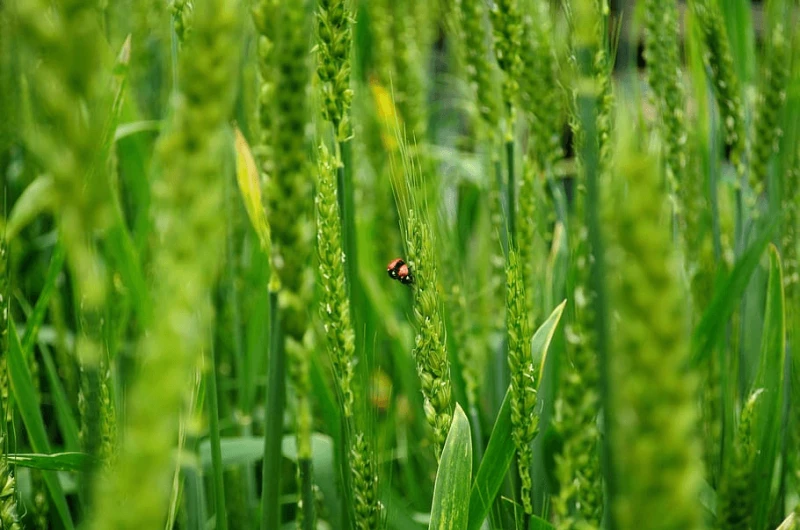How to design climate-adaptive next-generation gene-edited plants while preserving biodiversity
How to design climate-adaptive next-generation gene-edited plants while preserving biodiversity


A special issue of the journal PLOS Biology explores plant engineering as a tool to improve the climate resilience and carbon capture potential of crops.
How can we sustainably feed our growing population as the climate changes? This Perspective from Megan Matthews argues that by engineering photosynthesis to increase carbon capture, we can mitigate climate change and increase food production.
As climate change affects weather patterns and soil health, agricultural productivity could decrease substantially. Synthetic biology can be used to enhance climate-resilience in plants and create the next generation of crops, if the public will accept it, according to this article from Jennifer Brophy.
The microbiome of cropland soils could be manipulated to accelerate soil carbon sequestration. This Perspective from Noah Fierer suggests how this could be achieved and outlines the general steps required to develop, implement, and validate such microbial-based strategies.
Cultivated species have reduced genetic diversity relative to their closest wild relatives. Preserving the rich genetic resources that crop wild relatives offer while avoiding detrimental variants and maladaptive genetic contributions is a central challenge for ongoing crop improvement. This Essay from Jeffrey Ross-Ibarra supports the use of traditional varieties as an intermediate between wild relatives and modern cultivars to increase genetic diversity in crops.
This is an excerpt. Read the original post here

 | Videos | More... |

Video: Nuclear energy will destroy us? Global warming is an existential threat? Chemicals are massacring bees? Donate to the Green Industrial Complex!
 | Bees & Pollinators | More... |

GLP podcast: Science journalism is a mess. Here’s how to fix it

Mosquito massacre: Can we safely tackle malaria with a CRISPR gene drive?

Are we facing an ‘Insect Apocalypse’ caused by ‘intensive, industrial’ farming and agricultural chemicals? The media say yes; Science says ‘no’
 | Infographics | More... |

Infographic: Global regulatory and health research agencies on whether glyphosate causes cancer
 | GMO FAQs | More... |

Why is there controversy over GMO foods but not GMO drugs?

How are GMOs labeled around the world?

How does genetic engineering differ from conventional breeding?
 | GLP Profiles | More... |

Alex Jones: Right-wing conspiracy theorist stokes fear of GMOs, pesticides to sell ‘health supplements’




 Viewpoint — Fact checking MAHA mythmakers: How wellness influencers and RFK, Jr. undermine American science and health
Viewpoint — Fact checking MAHA mythmakers: How wellness influencers and RFK, Jr. undermine American science and health Viewpoint: Video — Big Solar is gobbling up productive agricultural land and hurting farmers yet providing little energy or sustainabilty gains
Viewpoint: Video — Big Solar is gobbling up productive agricultural land and hurting farmers yet providing little energy or sustainabilty gains Fighting deforestation with CO2: Biotechnology breakthrough creates sustainable palm oil alternative for cosmetics
Fighting deforestation with CO2: Biotechnology breakthrough creates sustainable palm oil alternative for cosmetics Trust issues: What happens when therapists use ChatGPT?
Trust issues: What happens when therapists use ChatGPT? California, Washington, Oregon forge immunization alliance to safeguard vaccine access against federal undermining
California, Washington, Oregon forge immunization alliance to safeguard vaccine access against federal undermining 30-year-old tomato line shows genetic resistance to devastating virus
30-year-old tomato line shows genetic resistance to devastating virus The free-range chicken dilemma: Better for birds, but with substantial costs
The free-range chicken dilemma: Better for birds, but with substantial costs ‘You have to treat the brain first’: Rethinking chronic pain with Sanjay Gupta
‘You have to treat the brain first’: Rethinking chronic pain with Sanjay Gupta
